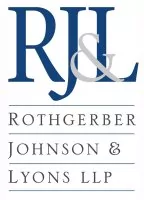Those who follow employment law are familiar with the roller-coaster story of arbitration agreements in employment contracts. The state courts say you can't use them. The Supreme Court says you can. The lower courts say okay, but only if all of the i's and t's are dotted or crossed in the right way. In the most recent salvo in this back-and-forth, the Ninth Circuit Court of Appeals ruled in Circuit City Stores v. Mantor that, although the Supreme Court says that employee arbitration agreements are enforceable, most still would not be enforced because they invoke arbitration rules for filing deadlines (thus shortening the statute of limitations), do not allow for class actions, require the employee to share arbitration costs, or allow the employer to modify the arbitration agreement.
It is true that the Ninth Circuit may well be "out there" with its most recent ruling. However, instead of going back through your arbitration agreement to see what it will take to change it, this may be the time to consider a different approach. One alternative to arbitration agreements is a simple mutual waiver of jury trial.
For all its benefits, arbitration in employment cases carries many disadvantages to the employer. First, may be difficult or impossible to get arbitrators to dismiss or enter summary judgment against legally deficient claims. They also have an economic interest in having the litigation go on as long as possible. Second, while judges are paid with public funds, arbitrators have to be paid large fees in advance by the litigants (principally the employer). Third, arbitrators frequently arrive at "compromise" judgments and occasionally enter multimillion-dollar awards in favor of employees. Because there are no appeal rights in arbitration, there is no way to challenge the whim of an arbitrator. Finally, because employers may be required to extend all of the procedural rights available to employees in court cases, proceeding before an arbitration panel may be no faster or cheaper than regular civil litigation.
Many of the advantages employers sought through arbitration can be realized in another way—through mutual waiver of jury trial, resulting in bench trials of disputes between employers and employees. Indeed, until discrimination cases began to be tried before juries after the Civil Rights Act of 1991, few employers felt any need for arbitration agreements. Judges rarely demonstrate the caprice and favoritism that result in large jury awards. Further, judges are more likely than arbitrators to apply the law, and dismiss meritless claims before trial. If a judge does fail to follow the law, it is possible to get the judgment reversed on appeal (which tends to keep trial judges closer to the law in the first place). Finally, the fact that the employee knows that he or she faces a judge from the outset makes it easier to achieve a reasonable settlement—or even to prevent the case from being filed in the first place. There is a reason why the number of employment discrimination claims exploded after 1991: plaintiffs like their chances a lot more when their case is tried before a jury.
Courts are also more likely to enforce jury trial waivers than arbitration agreements. A waiver of jury trial does not deprive the employee of any of the remedies or procedures he or she would be entitled to in a regular case. In fact, until 1991 almost all federal discrimination cases were tried before judges, so it would be a stretch to claim that the forum is unfair to the plaintiff.
Practical Significance
Rather than tear your hair out trying to decide how you can craft an arbitration agreement that is enforceable (but doesn't give away all the benefits arbitration is supposed to achieve), take a look at a mutual waiver of jury trial instead.
Sam Ventola is special counsel at RJ&L's Denver office where his practice is focused on constitutional law, campaign funding, insurance, personal injury, product liability, civil rights, church and state law, and employment law. He graduated first in his class from the University of Colorado School of Law in 1988, and then clerked for the Hon. Sherman G. Finesilver, Chief Judge of the U.S. District Court, District of Colorado.
The content of this article is intended to provide a general guide to the subject matter. Specialist advice should be sought about your specific circumstances.


